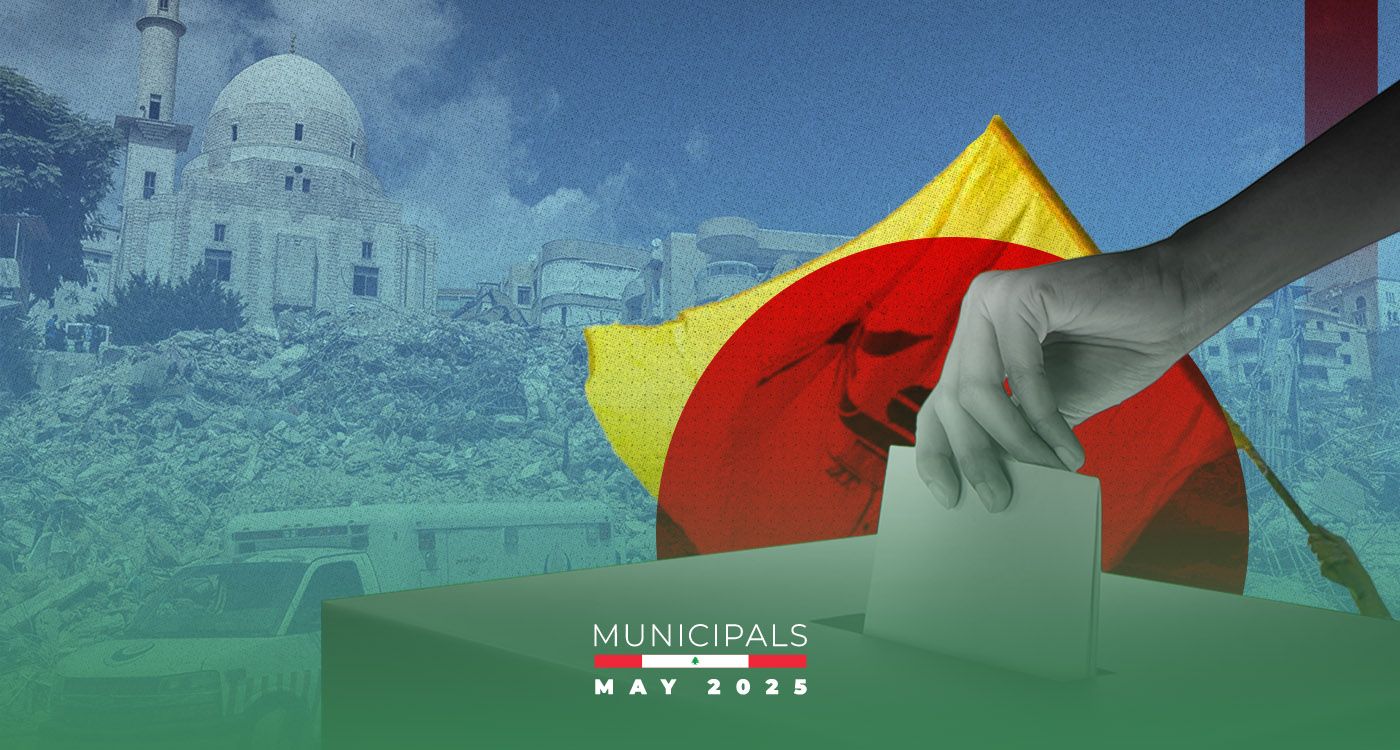
Shattered windows, pockmarked walls and bulldozers clearing debris – these are the lasting imprints of war that Tyre bears just six months after the ceasefire between Hezbollah and Israel. Once a vibrant port city, Tyre now struggles under the weight of destruction. Yet, amid the rubble, life is cautiously resuming: vendors have reopened their shops, and children are navigating debris-strewn streets, slowly piecing their routines back together. Amid this fragile recovery, the city now turns toward a civic moment: the municipal and mukhtar elections on May 24.
A Near Acclamation Victory for the Shiite Duo?
For Amal Movement and Hezbollah, this is the first electoral test in Tyre since the war – but not much is being tested. The political ground remains comfortably familiar. Their 21-member slate, the “Development and Loyalty” list, is running virtually unopposed.
Leading the charge is Hassan Dbouk, seeking his third consecutive term as municipal president. His longtime vice-president, Salah Sabrawi, has stepped aside for Alwan Sharafeddine, Amal’s media officer in Jabal Amel. The list was reshuffled, bringing in 11 new names, ostensibly to ensure representatives from Sunni and Christian communities. Yet, with 16 candidates from Amal and five from Hezbollah, the core power structure remains intact.
Running against the Shiite duo is a newly announced independent list called “Sour Madinati” (Tyre My City), which has formed a partial list of 10 candidates. According to sources, most of its members had sought inclusion in the Amal-Hezbollah ticket but were excluded due to the list’s early closure. Instead of withdrawing, they banded together to offer an alternative.
However, the candidates stress that their platform is not driven by personal ambition, but by a belief in participatory local leadership as a remedy for Tyre’s chronic municipal issues.
While “Sour Madinati” represents a step toward pluralism, the lack of a strong opposition list has practically guaranteed an uncontested victory for the Amal-Hezbollah coalition. Despite their initial success in the 2022 parliamentary elections, the forces of change are absent from the 2025 municipal elections. In several smaller towns, candidates for municipal council seats and mukhtar positions have already won by acclamation, with no challengers coming forward. These towns include Jebbayn, Zaloutiyeh, al-Knaissah and Nafakhiyeh.
Voting Amid the Ruins: Where Will the Border Villages Vote?
The aftermath of the war has left much of South Lebanon’s infrastructure in tatters, particularly in the border villages, which took the brunt of the aggression. In some areas, entire villages within the Tyre district have been reduced to rubble, with not a single building left standing. As a result, many towns are unable to host local elections.
Voters from villages like Chamaa, Chihine, Yarine and Tayr Harfa will have to travel to polling centers in Tyre to cast their ballots. For other towns, like the ones in the central sector, voters will have to cast their ballots in nearby locations due to the destruction and logistical challenges.
Is Tyre Safe for Elections?
Despite escalating tensions, the Lebanese government remains committed to holding elections on schedule. But in the absence of international guarantees to deter Israeli targets, the prospect of voter suppression looms large.
In the past week, Israeli airstrikes on Hezbollah personnel have rocked the Tyre district. On Wednesday, a vehicle was struck in Ain Baal, resulting in one death. A day earlier, a drone strike on Mansouri Road injured nine, including two children. Three remain in critical condition. These attacks raise serious concerns about whether casting a vote is worth risking one’s life, a question that may keep many at home on election day.
Mukhtar Elections: A Different Dynamic?
While the municipal elections seem set to favor the Amal-Hezbollah coalition, the mukhtar elections offer a different dynamic. These grassroots elections have attracted a more diverse set of figures, with independent and opposition candidates entering the race. The presence of these candidates has created a more competitive environment compared to the more predictable municipal race, where the Amal-Hezbollah alliance remains firmly in control.
While it’s unlikely that these contests will yield major upsets, their very existence suggests a slow chipping away at the monolith of local power. Where the municipal elections are a performance of continuity, the mukhtar races hint at something different.


Comments